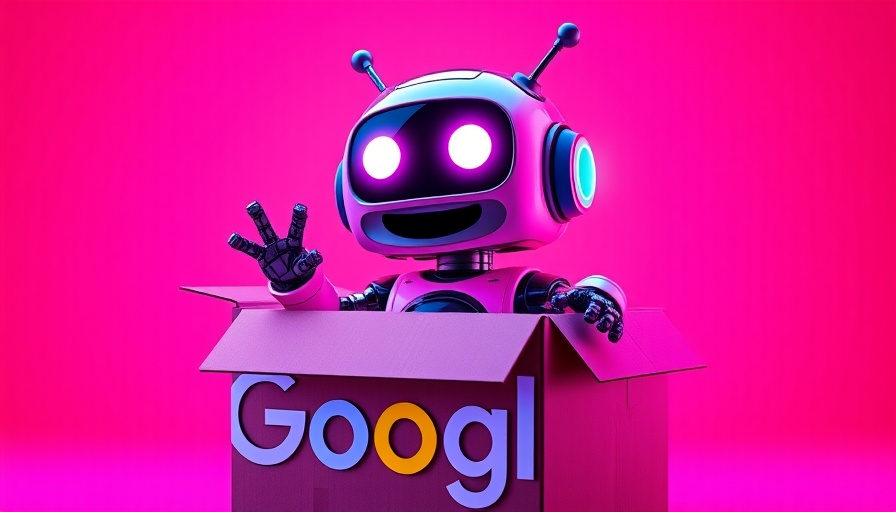
Google's New Experiment: AI-Generated Answers Up Front
Google has announced that it is currently testing a significant change in how search results are presented. Traditionally, AI-generated answer boxes within Google searches required users to manually expand them to access content. However, in a recent shift, these boxes will be opened by default, showcasing AI's responses without needing any additional clicks. This change marks a new chapter in search technology, aiming at enhancing user experience and engagement with AI responses.
The Implications of Default AI Responses
This shift to opening AI-generated answers automatically may have several implications for users and webmasters alike. First, it streamlines the search experience by showing pertinent information instantly. This may enhance accessibility to answers, fostering a sense of efficiency for users who seek quick information. Moreover, AI-generated answers could offer a more comprehensive overview of complex queries, potentially keeping users engaged with Google's ecosystem.
AI and Its Role in Search
With AI becoming increasingly integrated into search experiences—like the recently rolled-out Search Generative Experience (SGE)—users are likely to encounter more AI-driven content across various queries. SGE, which emerged as a conversational exploration tool, is being advanced to include features such as product recommendations and follow-up questions through AI. Yet, as SGE evolves, critiques regarding the quality and trustworthiness of AI responses totter on the edge of user experience standards. There are concerns over the accuracy of these generated responses, as users rely on AI for critical searches.
Understanding User Trust and Click Behavior
A crucial aspect of this experimentation is how users perceive these AI answers. Trust is a significant factor in search; if users begin to rely on AI answers, it may significantly influence their click behavior on traditional SERPs. Research shows that while quick answers are appealing, many users prefer to verify information by checking linked websites, especially for serious queries concerning health or finance. User trust may sway the effectiveness of Google’s new approach in retaining relevant traffic for web content.
SEO's New Era: Adapting to AI Integration
For SEO professionals, this shift signals a new era of adaptation. As AI-generated content captures a greater share of visibility on the SERPs, optimizing content for AI’s summarization algorithms might become essential. Creating high-quality, trustworthy content will be vital in competing for attention against AI summaries that appear at the top of search results. Brands and content creators must rethink their strategies to ensure they maintain relevance in an increasingly AI-centric landscape.
Potential Challenges Ahead
Despite the positive reception of AI integration, challenges remain. The potential for plagiarism—where AI generators inadvertently lift entire passages of text from existing sources—could pose risks to web content creators and domain authorities. Anonymity behind sources diminishes accountability, leading to a climate of mistrust among users. As this technology evolves, so must the protocols around displaying and referencing information from various web sources.
Paving the Future for AI in Search
The ongoing experimentation signifies a broader movement towards utilizing AI capabilities to enhance user interactions with technology. Google's decision to test AI-generated answers opened by default highlights the company's commitment to remaining at the forefront of technological innovation. As these tools continue to develop, users should prepare for a future enriched by AI, while marketers must continue to adapt their strategies to thrive amidst these changes.
Ultimately, understanding how users engage with these innovations will shape the future of search. We encourage SEO professionals and content creators to stay updated on AI developments to harness the technology positively.
 Add Row
Add Row  Add
Add 


 Add Row
Add Row  Add
Add 

Write A Comment